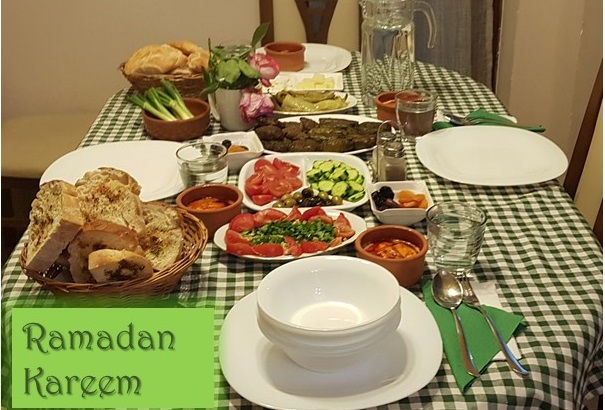31st May 2019 Skopje, North Macedonia
Ramadan in our Skopje Neighbourhood

What is Ramadan?
Of all the months, Muslims love Ramadan the most mainly because of the greater rewards found in this month. Ramadan is also significantly known as the month where the Quran was sent down to the Prophet (Peace Be Upon Him) as a guidance to mankind. But apart from this, there are also several other reasons that made a Muslim fall deeply in love with this month!
This month is not only for abstaining food, drink etc. during the day time but is also encouraged for believers to spend more time devoting themselves to Allah (SWT) through prayers.
When one does not eat or drink till dusk, he/she learns the hunger of the poor and will indirectly involve in more charitable activities.
Ramadan is the month that brings the families together at their dining tables with various dishes treating themselves after fasting the whole day. Through this act, greater bonding among family members and friends will be accomplished.
The miracle of Ramadan is that it not only purifies souls but also the physical body of the believers.
Also during this month, a believer is encouraged to be more compassionate by spending more time with the poor, and understand their real suffering
Ramadan is the month of giving. It is hoped that through the performance of Zakat Al-Fitr, greed is eliminated from the hearts of the believers and further financial aid is provided to the poor and needy.
When is Ramadan?
Ramadan falls at a different time each year because the Islamic calendar is based on lunar cycles, which means there is not a fixed date.
Ramadan in the Workplace
During Ramadan, Muslims fast from sunrise to sunset (making the fasts this year approximately 17 hours per day).
As a result, a Muslim’s usual daily routine changes due to disrupted sleeping and meal times.
So how can employers and colleagues support Muslim employees during this period?
Flexible working
If there is not already a flexible working policy in place, employers could offer arrangements that allow Muslim employees to work different hours.
Some employees may wish to start work earlier or work through their lunch break so they can leave work earlier in order to break their fast at home.
Annual leave
An employee may request to take off certain days during Ramadan, including for Eid-ul-Fitr. The last ten days of Ramadan are particularly special for Muslims and due to the uncertainty of dates (as the Islamic calendar is a lunar calendar), employers may receive annual leave requests at short notice.
Scheduling events
Employers should be mindful that employees may not feel comfortable attending social or training events involving food and drink.
To prevent this, employers could encourage managers to send around an email or mention in a team meeting that Ramadan has begun so team members are conscious when scheduling meetings and events.
Productivity
It is likely that the productivity of an employee who is fasting will be affected, particularly towards the latter part of the working day. Fasting may affect people in different ways and some understanding from managers and colleagues can be helpful.
Finally, this is a blessed month of being closer to God and spending more gathering activities with families and friends other Muslims and everyone else by showing love and care to all of them.
Ramadan Mubarek
Ramadan Kareem
